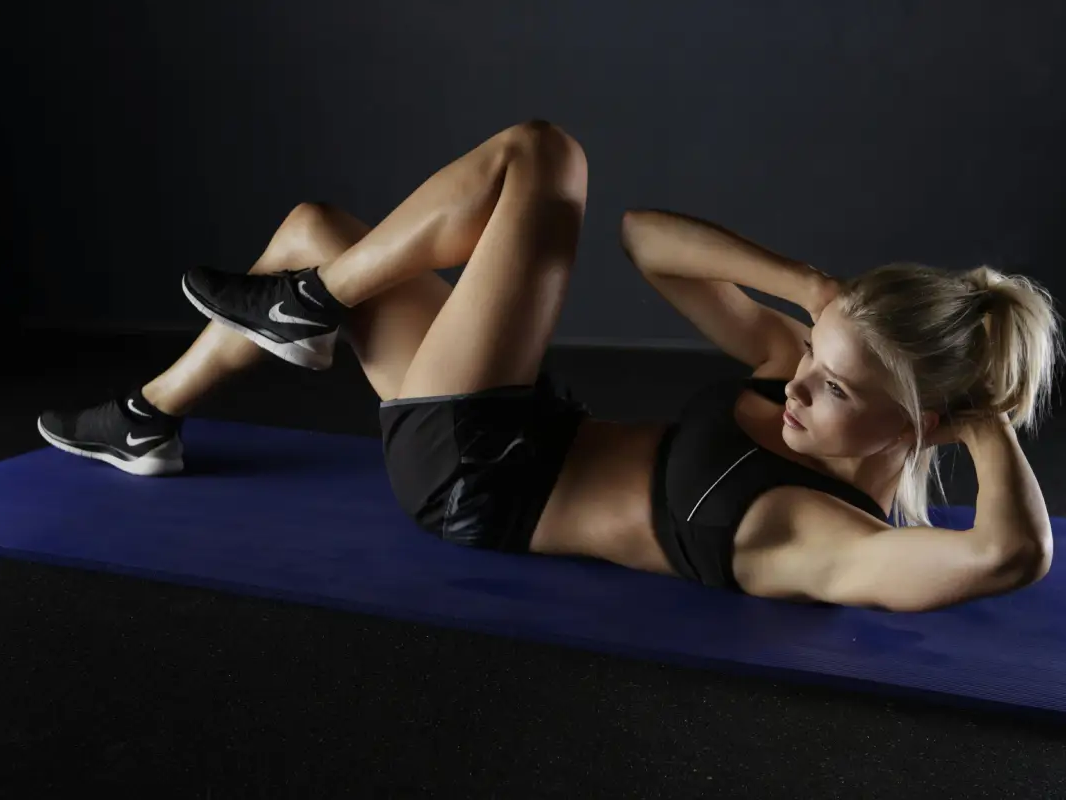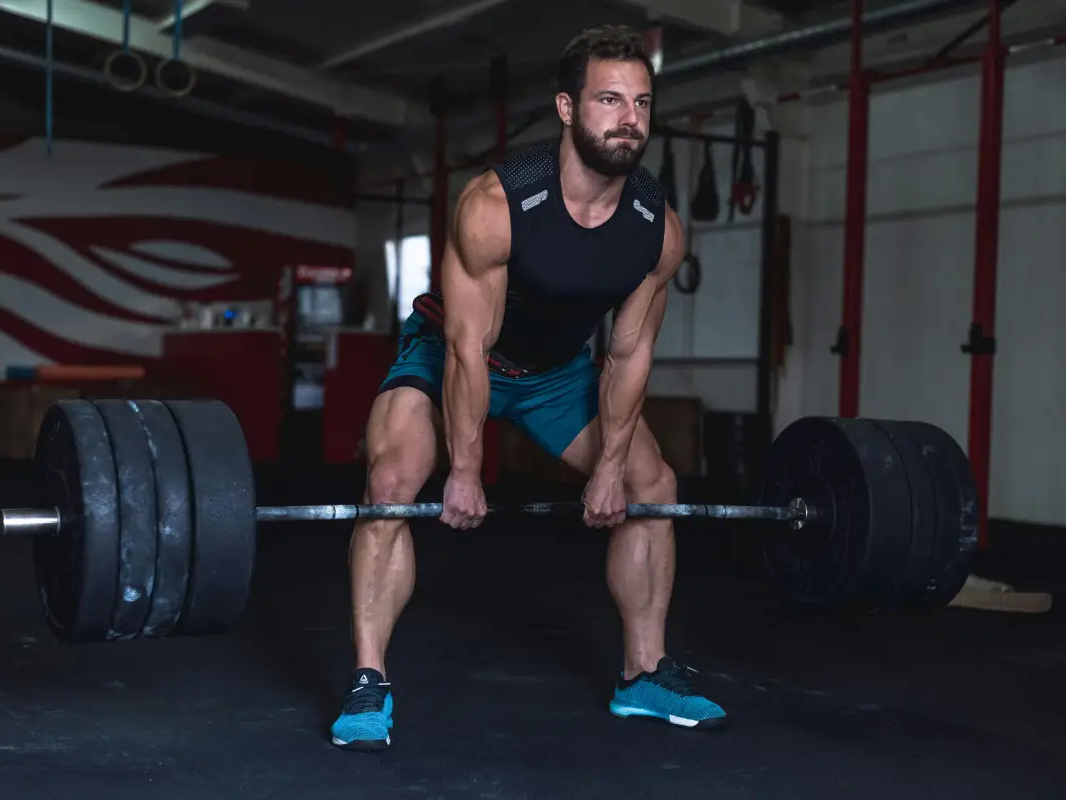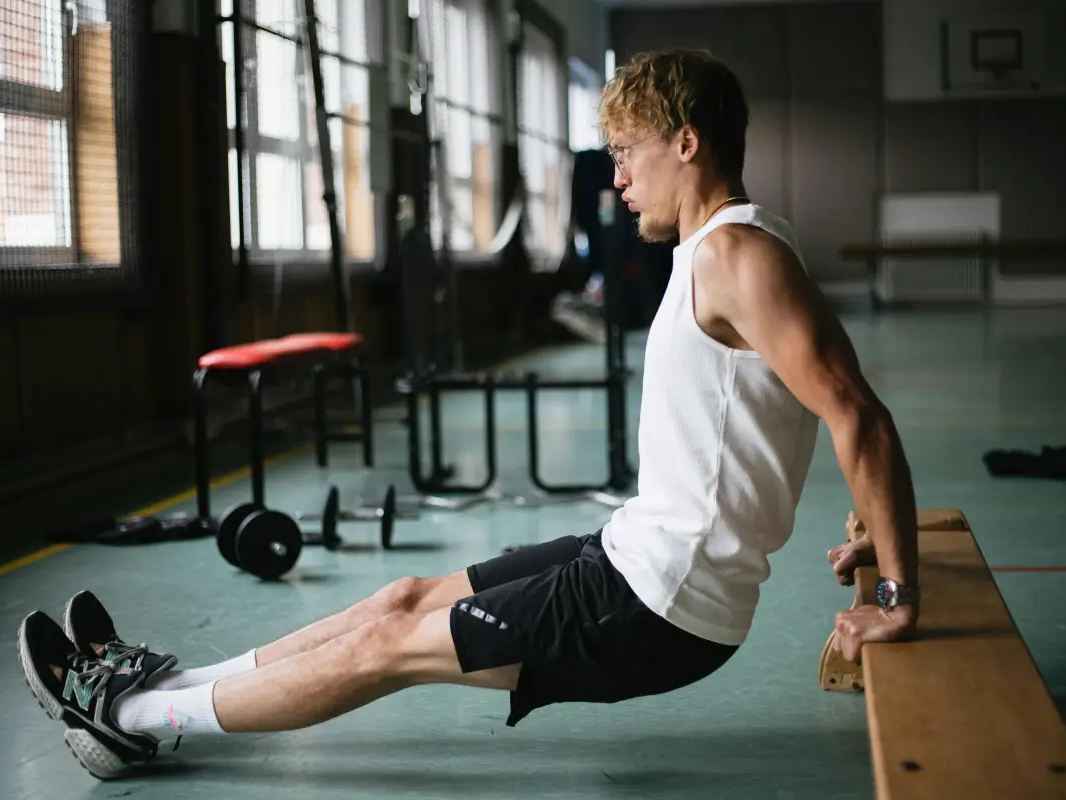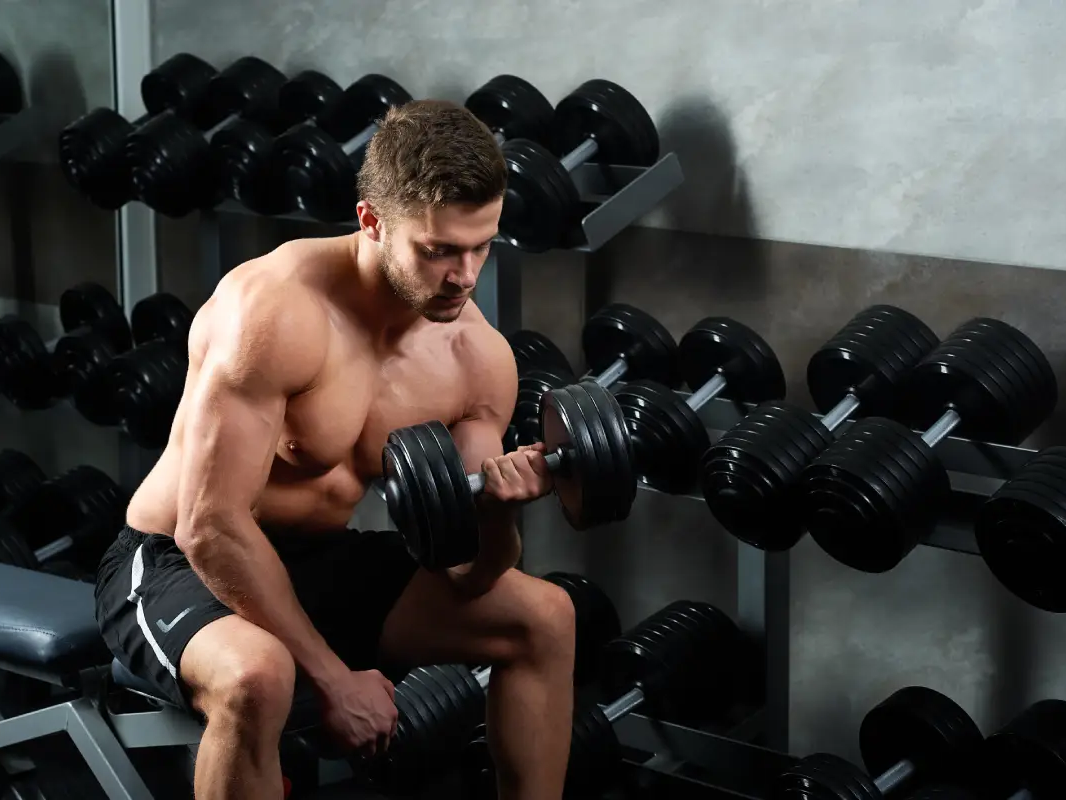Starting a workout routine can feel overwhelming, especially with so many different training programs available. If you are a beginner looking for an efficient and effective way to build muscle and strength without spending hours in the gym every day, a 3-day workout split is an excellent option.
A 3-day split workout focuses on training different muscle groups on different days, allowing for better recovery and muscle growth. This guide will walk you through the best 3-day split for beginners, providing a structured plan that delivers real results.
Table of Contents
ToggleWhat Is a 3-Day Split Workout?
A 3-day split workout is a strength training program where you divide your workouts across three days of the week, focusing on different muscle groups each day. This format allows for sufficient recovery time while ensuring you train your entire body effectively.
Common 3-day split structures include:
- Push/Pull/Legs (PPL) – One day for pushing muscles (chest, shoulders, triceps), one for pulling muscles (back, biceps), and one for legs.
- Full-Body Split – Training all major muscle groups each session but with varying intensity.
- Upper/Lower/Full-Body – One session for upper body, one for lower body, and one full-body workout.
For beginners, the Push/Pull/Legs split is one of the best approaches as it provides a clear structure while allowing for recovery.
Benefits of a 3-Day Split Workout
1. Efficient and Manageable
A 3-day split allows for significant progress while training only three times per week, making it ideal for those with a busy schedule.
2. Better Recovery
Since each muscle group gets ample rest, you can train with higher intensity without the risk of overtraining.
3. Balanced Muscle Development
By dividing workouts strategically, you ensure all major muscle groups get adequate attention.
4. Ideal for Strength and Muscle Growth
This approach allows beginners to progressively overload muscles without excessive fatigue.
The Best 3-Day Split Workout for Beginners
This beginner-friendly routine follows a Push/Pull/Legs (PPL) split to ensure balanced strength development.
Workout Schedule
- Day 1 – Push (Chest, Shoulders, Triceps)
- Day 2 – Rest or Active Recovery
- Day 3 – Pull (Back, Biceps)
- Day 4 – Rest or Active Recovery
- Day 5 – Legs (Quads, Hamstrings, Glutes, Calves)
- Day 6 – Rest or Cardio
- Day 7 – Rest or Light Activity
Day 1: Push Workout (Chest, Shoulders, Triceps)
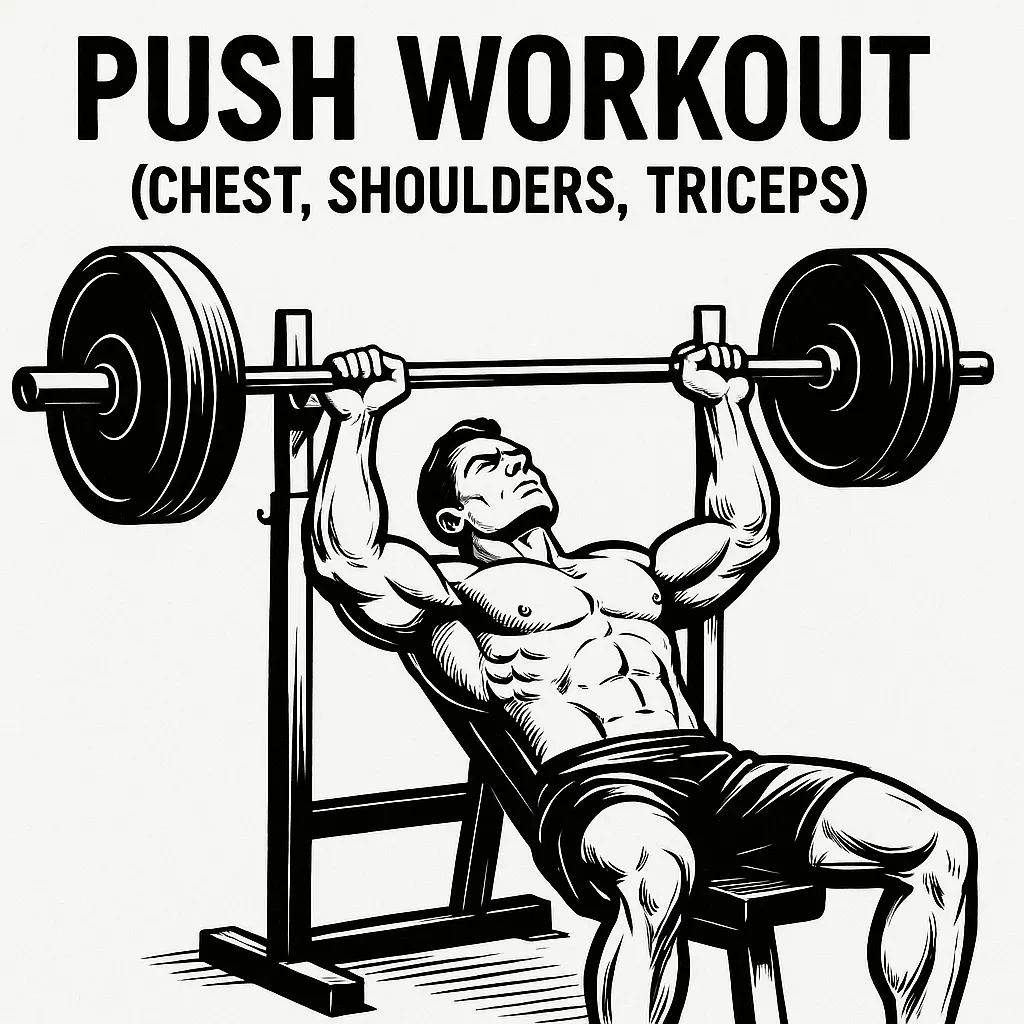
| Exercise | Sets | Reps |
| Bench Press (Barbell or Dumbbell) | 3 | 8-12 |
| Shoulder Press (Dumbbell or Machine) | 3 | 8-12 |
| Incline Dumbbell Press | 3 | 10-12 |
| Lateral Raises | 3 | 12-15 |
| Triceps Dips (Assisted if needed) | 3 | 8-12 |
| Triceps Rope Pushdowns | 3 | 12-15 |
Tips:
- Focus on slow, controlled movements to engage muscles fully.
- Increase weights gradually as you progress.
Day 3: Pull Workout (Back, Biceps)
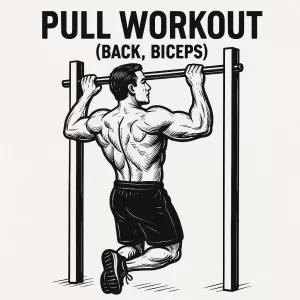
| Exercise | Sets | Reps |
| Lat Pulldown (or Pull-Ups) | 3 | 8-12 |
| Barbell or Dumbbell Row | 3 | 8-12 |
| Seated Cable Row | 3 | 10-12 |
| Face Pulls (for rear delts) | 3 | 12-15 |
| Barbell or Dumbbell Bicep Curl | 3 | 10-12 |
| Hammer Curls | 3 | 12-15 |
Tips:
- Use strict form to avoid momentum-based lifting.
- Engage your back muscles fully by retracting your shoulders.
Day 5: Leg Workout (Quads, Hamstrings, Glutes, Calves)
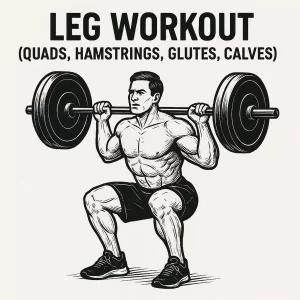
| Exercise | Sets | Reps |
| Squats (Barbell or Dumbbell) | 3 | 8-12 |
| Romanian Deadlifts (Hamstrings & Glutes) | 3 | 10-12 |
| Lunges (Bodyweight or Dumbbell) | 3 | 10 per leg |
| Leg Press | 3 | 10-12 |
| Standing Calf Raises | 3 | 12-15 |
| Seated Calf Raises | 3 | 12-15 |
Tips:
- Keep a neutral spine during squats and deadlifts.
- Engage your core for stability in all movements.
Additional Tips for Success
1. Prioritize Progressive Overload
To see real results, gradually increase weights or repetitions each week. Small, consistent progress leads to muscle growth and strength improvements over time.
2. Focus on Form Over Heavy Weights
Especially for beginners, proper exercise form is more important than lifting heavier weights. Avoid ego lifting to prevent injuries.
3. Allow for Rest and Recovery
Muscles grow when they recover, not just during workouts. Aim for seven to nine hours of sleep per night and rest days between sessions.
4. Fuel Your Body with Proper Nutrition
- Consume enough protein to support muscle repair and growth.
- Prioritize carbohydrates for energy and healthy fats for hormone balance.
- Stay hydrated to improve performance and recovery.
5. Stay Consistent
Results take time. Stick to your 3-day split routine consistently for at least eight to twelve weeks before assessing major progress.
Who Should Use This Workout?
This 3-day split is ideal for:
- Beginners looking for a structured, manageable workout plan.
- Busy individuals who cannot train five to six times per week.
- Those focusing on muscle growth and strength gains without excessive fatigue.
- Anyone who wants to improve overall fitness while allowing time for recovery.
Conclusion
A 3-day split workout is one of the best ways for beginners to build muscle, improve strength, and establish a solid fitness routine without spending hours in the gym. By focusing on push, pull, and leg workouts, you can target every major muscle group while ensuring proper recovery.
Follow this structured plan, focus on progressive overload and proper form, and stay consistent. In a few months, you will see noticeable improvements in your strength, endurance, and overall physique.
Last Updated on July 7, 2025
Written By
At Ironclad Fitness, we cut through the noise with expert-backed, no-nonsense advice on training, nutrition, and gear. Our team stays ahead with research, real-world experience, and insights from industry professionals. We prioritize accuracy, transparency, and actionable guidance to help you get stronger every day.
Join thousands of readers leveling up their fitness.
Skip the guesswork—get insights on training, health, and the right gear to support your progress.
You may also like
11 Best Shoulder Exercises for Building Muscle
Strong, well-developed shoulders are essential for a powerful upper body. The…
25 Best Core Workouts to Build Strength & Stability
A strong core is essential for overall fitness, posture, and injury prevention.…
17 Best Leg Exercises For Your Leg Day Workout
A strong lower body is essential for athletic performance, muscle balance, and…
13 Best Tricep Exercises for Building Muscle Mass
Building strong and defined triceps is essential for achieving bigger, more…
11 Best Bicep Exercises for Building Muscle & Strength
Strong, well-developed biceps are a goal for many people looking to improve…
23 Best Back Workouts for Building Muscle
A well-developed back is essential for strength, posture, and overall athletic…

